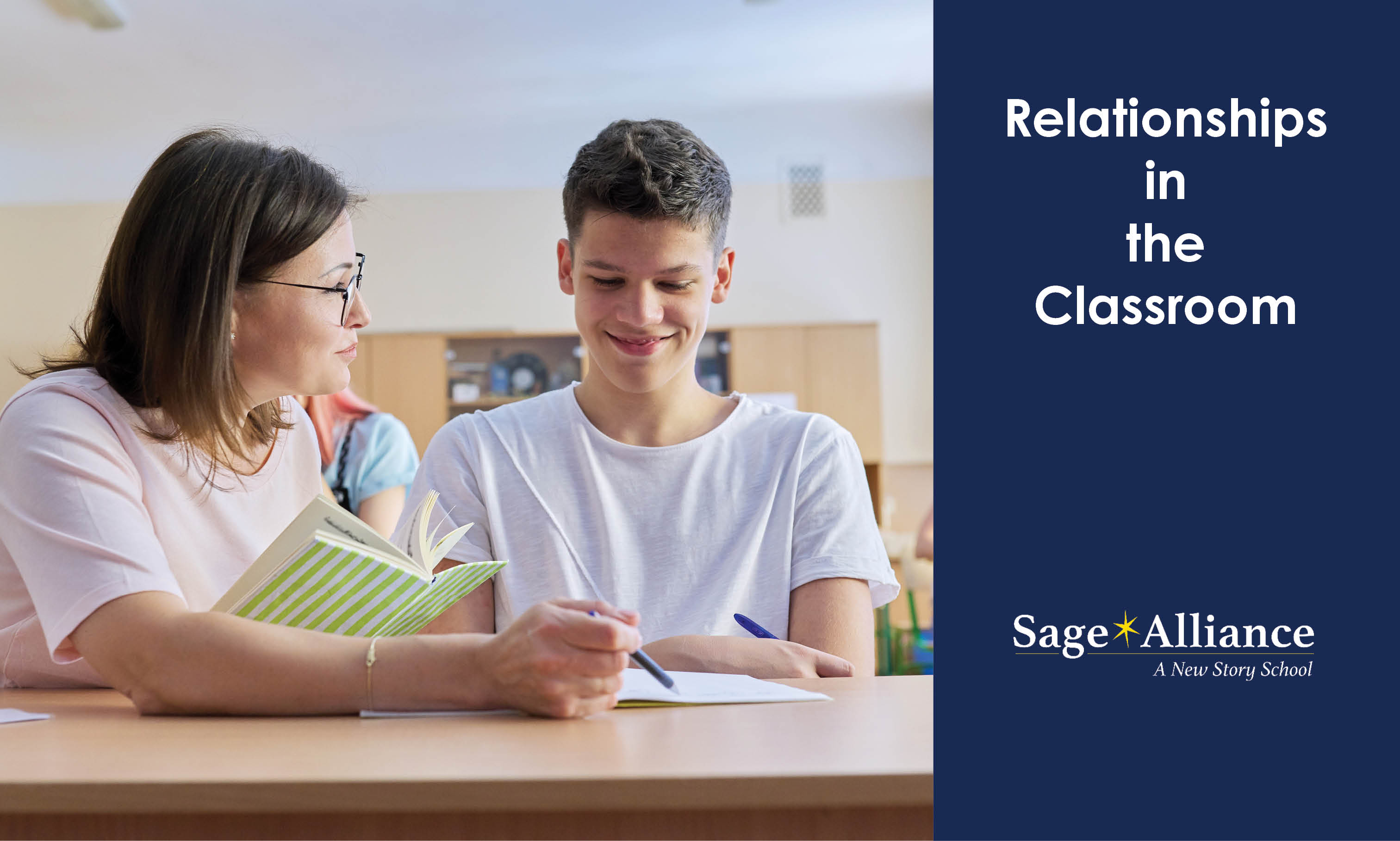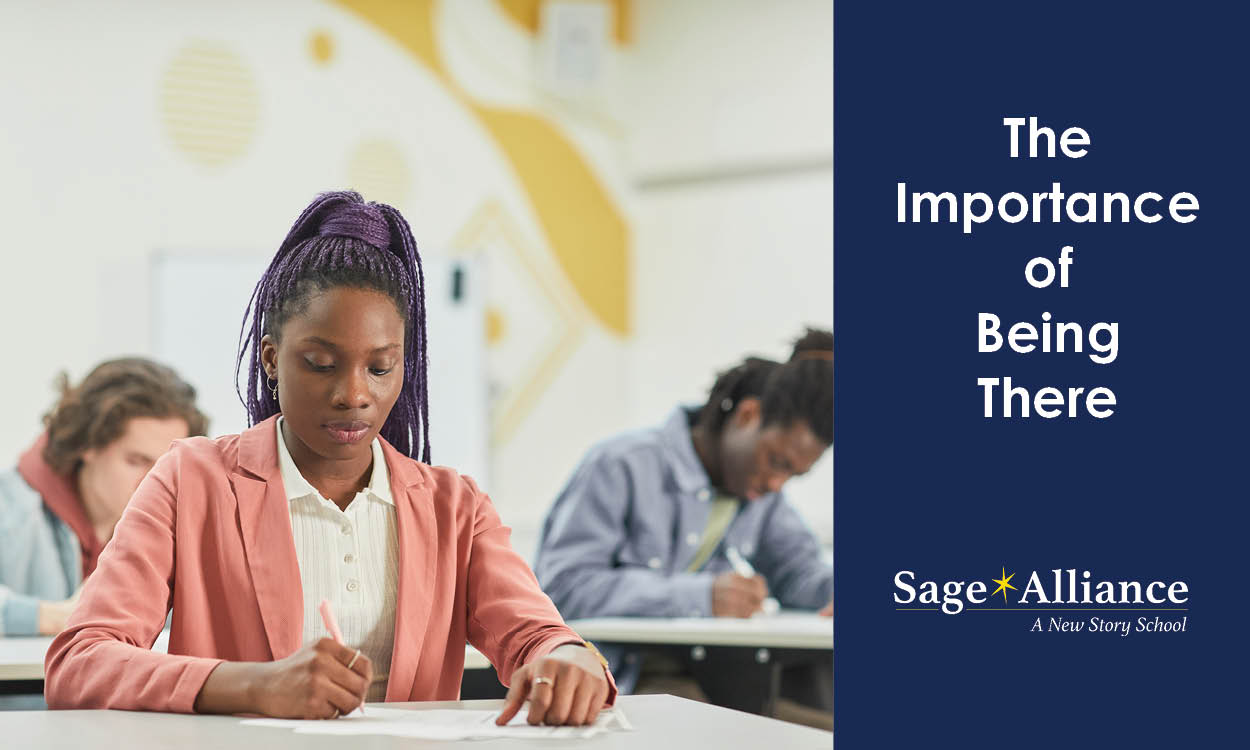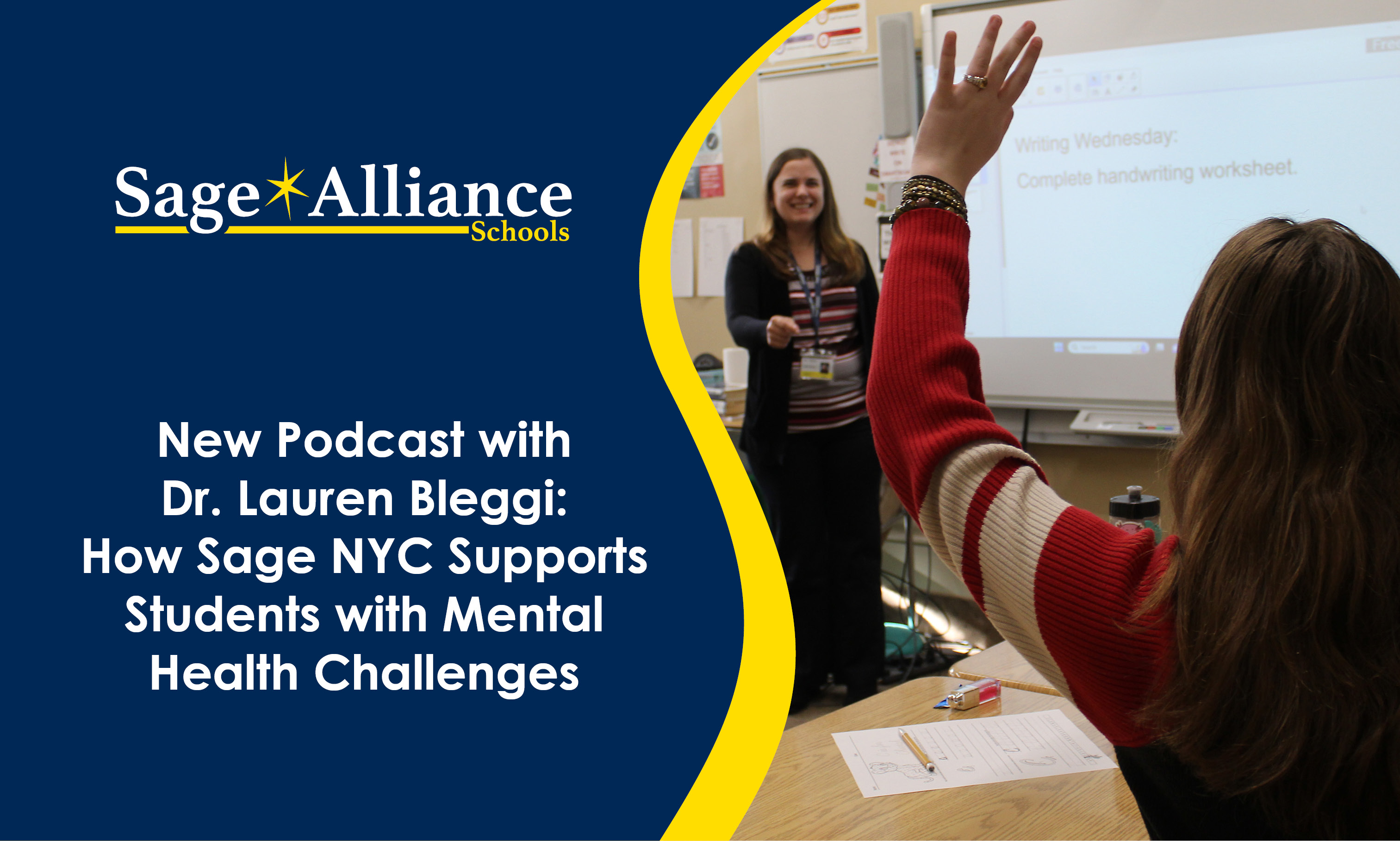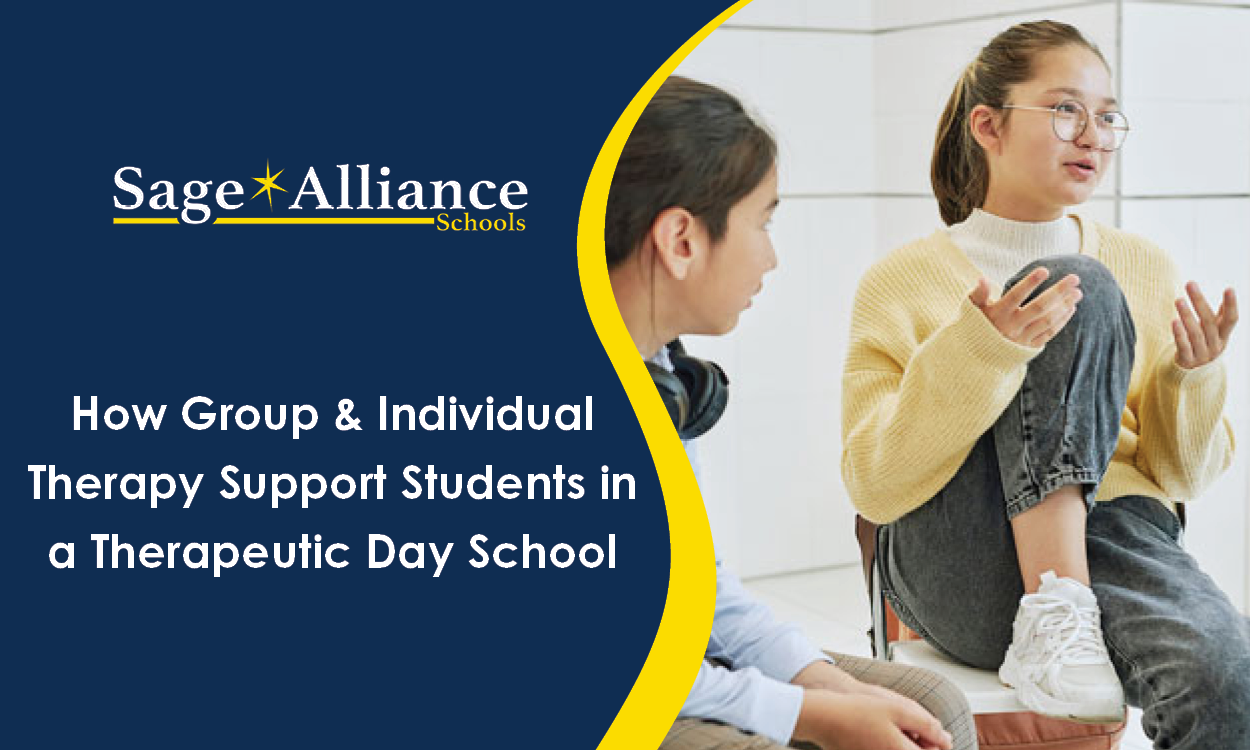Relationships in the Classroom
Posted: April 10, 2012 | Written By: Holly Ference | Category: Therapeutic Education

Research has shown that the relationship between a student and his or her teacher is one of the most critical predictors of academic success. However, this unique and personalized bond often gets overlooked as the focus in schools lies on standardized tests as a measure of academic achievement. In a world where most classrooms are filled with twenty-five to thirty students with only one teacher, the importance of this relationship gets lost. At Sage Day, with a five to one student to teacher ratio, teachers establish exceptional relationships with students through more individualized attention and instruction as well as a sincere desire to help each child succeed.
In her book More Life Through Management, Alice Terry states “A fundamental question for a student is ‘Does my teacher like me?’ Given a rigorous, aligned curriculum, the answer to that simple question is our best predictor of student achievement.” Students spend an average of five to seven hours in school each day. During this time, the feeling of acceptance and respect from the teacher becomes a critical component to academic success. Sage Day offers not only a challenging academic curriculum but also teachers who are dedicated to getting to know each student, understand their needs, and formulate relationships and instruction that will best serve each child. Through a therapeutic approach to learning and support from both administrators, therapists, and teachers, students are able to reach their fullest potential in a safe and nurturing community.
Attachment theory, originally developed by John Bowlby and later expanded by Mary Ainsworth, explains the unique relationship which develops between an infant and its primary caregiver. This theory has since been expanded to describe the dynamics of long-term relationships between human beings. Most recently, attachment theory has been translated to apply to the educational world wherein the relationships formed between students and their teachers become central to student success. In the classroom, positive student-teacher relationships provide students with a sense of security which directly affects academic performance. Students with this secure base feel safe to ask for help and make mistakes while also feeling more comfortable approaching seemingly difficult academic tasks. David and Christi Bergin explain in their article, Attachment in the Classroom, that secure and positive attachments in the classroom directly correlate to higher grades and standardized test scores. Notably, strong attachment to teachers is also associated with improved self-esteem and greater emotional regulation which, in turn, positively affects academic performance.
Recently a teacher approached me seeking advice on how to best meet her student’s need. The student was having trouble on assessments however, had demonstrated through class discussions and work completion that he did understand the material presented in class. After reading the student’s history, speaking with his therapist, and discussing concerns with the student, she learned that this particular student had a history of school avoidance and anxiety. Having worked with the student for several months, she knew that he worked best when he could verbalize, rather than write his answers. She also knew that when his anxiety increased, he used a drawing pad to abstractly sketch as a self-calming strategy. Wanting to maximize his success in her class, she asked if she could use my office to administer the test to him orally. Of course, I was thrilled that the teacher took such initiative to understand the student so I enthusiastically said she could use my office for as long as she needed. Now, this was not a formal modification or accommodation listed in the students IEP. Rather, it was a temporary strategy developed by the teacher based specifically on the student’s needs. Her actions made it evident to both the student and me that she truly cared about the student’s academic and emotional achievement. Once the student’s anxiety was reduced he was soon asking to return to the classroom and take his assessments in written form under standard testing conditions.
This brief and simple story exemplifies the exceptional bonds that develop between the staff and students at Sage Day. The attachments or relationships formulated throughout the school year are unique to Sage Day as the teachers are better able to fully know and understand each student. The small community of staff and students fosters an environment of mutual respect, understanding, and acceptance. Hoffman and Leak have stated that “We cannot teach well if we do not know them well.” The educators at Sage Day work to develop and maintain unparalleled relationships with their students. In turn, we have been privileged to witness the incredible transformations students make here both academically and emotionally.
Want to be notified of new articles and resources from Sage Alliance? Click here to submit your email and opt into our newsletter.









